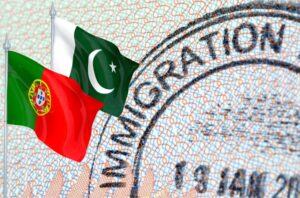Buying investment property in Malta offers a unique opportunity for diversifying their portfolio in a market known for its stability and growth potential. Whether you’re drawn to the idea of a sun-soaked holiday home or seeking to capitalize on the thriving rental market, Malta’s real estate landscape presents a wealth of options. As an EU member state with a strong economy and a range of government incentives to encourage foreign investment, the island caters to personal and financial aspirations.
We navigate you through the intricacies of the Maltese property market, providing a roadmap for your first investment venture on this historic and dynamic Mediterranean island. From understanding legal requirements to pinpointing the perfect location, let’s explore what makes Malta an attractive destination for property investors.
Buying Property In Malta
Malta’s Real Estate Landscape
The Maltese archipelago, nestled between Africa and Europe, has become a beacon for property investors worldwide. With its Mediterranean climate, English-speaking populace, and status as a full EU member state, Malta offers a unique blend of cultural richness and investment potential. The real estate market in Malta has been buoyant since 2007, playing a pivotal role in the nation’s economy.
Malta’s small size and dense population mean land is scarce, making real estate a particularly valuable commodity. This is reflected in the consistent capital appreciation of Maltese property, which has been a significant draw for investors.
Lately, the Maltese residential property market has seen a shift in customer preferences, with a growing demand for modern, luxurious properties. Buyers increasingly seek high-quality finishes, contemporary amenities, and strategic locations. This trend is especially noticeable in the development of upscale residential properties in coastal regions and prime urban areas like Valletta and Sliema.
The allure of these properties isn’t just for local buyers; international investors are also drawn to the high standard of living and investment opportunities that these luxury homes represent.
The Maltese government has contributed to this growth through initiatives like the Malta Individual Investor Program (MIIP), which, along with a favorable tax regime, has attracted foreign investment. These programs haven’t just driven up property prices but have also made real estate investments a viable path to residency in Malta for foreign students.
Recent Market Trends in Malta
The Maltese real estate market has shown remarkable resilience and growth, outperforming many of its European counterparts. Despite global economic uncertainties, such as the pandemic, Malta’s property market has continued to thrive.
In February 2021, for example, there was a 40% increase in Promises of Sales compared to the previous year, indicating a robust and active market.
The burgeoning rental market is one of the most significant trends in Malta‘s real estate sector. The rise of the sharing economy, coupled with an influx of expatriates and digital nomads, has led to a surge in demand for rental properties, particularly in urban centers. This demand has been met with historically low-interest rates, making it an opportune time for investors to purchase additional properties for rental purposes.
The rental market in Malta isn’t just profitable; it also provides a stable source of passive income. Rental rates often surpass the interest incurred on property loans.
Investors in Malta aren’t just motivated by financial returns; some are looking for assets for personal enjoyment or as a legacy for future generations. The island’s picturesque coastal locations offer prime holiday home opportunities, which can generate income through short-term vacation rentals facilitated by online platforms like Airbnb.
For those with a more hands-on approach, conversion projects present a lucrative avenue. By purchasing unconverted properties and renovating them, investors can sell at a premium, often with the help of government incentives for properties in Urban Conservation Areas (UCA). These incentives include stamp duty and capital gains tax exemptions, making such projects even more appealing.
As property values continue to climb, investing in Maltese real estate isn’t just about immediate returns but also about securing assets for the future. With property often appreciating faster than other asset classes, it represents a tangible and secure investment that can be passed down to the next generation, ensuring long-term financial security.

Legal Considerations for Foreign Buyers
Residency and Visa Requirements
Foreign nationals considering property investment in Malta should be aware of the MPRP, which provides a route from rental investment to residency. Successful applicants under this program can settle in Malta and may eventually obtain permanent residence.
The MPRP is generous in its scope, allowing the inclusion of family members spanning four generations in a single application. To be eligible, you must invest in real estate, with minimum purchase prices starting at USD 325,570 or an annual rental of at least USD 10,850. This investment grants access to Malta‘s healthcare and education systems. It allows visa-free travel within the Schengen Area for short stays.
The property must be held for a minimum of five years to maintain residency status. After this period, residency can be renewed indefinitely, provided the program’s criteria remain met.
Property Ownership Laws in Malta
Non-EU, EEA, or Swiss nationals must obtain an AIP permit to purchase property, except when buying within SDAs, where the process is more lenient.
The AIP permit can be obtained within approximately 35 days, assuming all documentation is correct. Specific minimum purchase prices must be met, which differ from the thresholds established by the MPRP.
Typically, foreign investors are restricted to owning one property outside of SDAs.
The Importance of Legal Due Diligence
Conducting legal due diligence is essential when acquiring property in Malta. This involves a comprehensive four-tier procedure to ensure local laws and regulations compliance.
The due diligence process includes:
- Verifying the property’s legal title.
- Ensuring all permits are in order.
- Confirming the property’s eligibility for transfer.
Necessary documentation includes:
- A valid passport.
- A clean criminal record.
- Health insurance.
- Proof of financial means.
All documents must be in English and are to be submitted to the Residency Malta Agency.
You will receive your residence permit upon passing the due diligence checks and completing the required investments. The MPRP also includes non-refundable contributions that benefit local community projects, demonstrating investors’ commitment to Malta‘s development.

Investment Property Types in Malta
Residential vs Commercial Properties
Investors have the option to focus on residential units and apartments, which are sought after due to a strong rental market. These properties can be rented out for extended and brief periods, potentially generating significant revenue. Conversely, commercial real estate serves a distinct clientele, with a small percentage of Maltese households involved in such leases.
Choosing between these two hinges on your investment objectives. Residential units can be profitable through vacation rentals, whereas commercial spaces typically offer businesses a more consistent revenue stream.
New Developments vs Historical Buildings
Investors also choose between newly constructed properties, abundant and backed by buyer protections, and older, character-rich buildings in historic locales like the Three Cities. While new properties come with certain assurances, older buildings require careful evaluation by experts to confirm their condition and worth.
Popular Locations for Investment
Selecting an optimal location is crucial. For residential rentals aimed at tourists, areas like Bugibba, Marsascala, and Mellieha are ideal due to their picturesque settings and convenience to attractions and transport. For commercial leasing, areas such as Sliema and St. Julian’s are preferred for their proximity to business districts.
Investors should be aware of the need for a rental license from the Malta Tourism Authority and, for non-residents, an AIP permit for purchases outside SDAs. Additionally, rental income must be reported for tax purposes.

Financial Aspects of Buying Property
Estimating Your Investment Budget
When considering an investment property in Malta, it’s crucial to establish a budget that encompasses all potential expenses. The market offers a range of property types, with starting prices for flats and maisonettes at USD 155,630 and USD 268,815, respectively. These initial figures are merely the tip of the iceberg.
Additional costs include notary fees, which are typically 1% to 3% of the purchase price, and the AIP permit fee of USD 253 for non-residents. Budget around USD 650 for registration fees and searches, vital for confirming the property’s legal status. Stamp duty is another significant cost, amounting to 5% of the purchase price, with 1% due at the Promise of Sale Agreement and the remaining 4% at the final transfer.
However, certain incentives may reduce these costs, such as reduced stamp duty rates for first-time buyers or properties in Gozo.
Fees can range from 7.6% to 10.6% of the property value. This estimate is essential for determining the financial viability of the investment and preparing for all related expenses.
Understanding Taxes and Fees
Familiarizing yourself with Malta‘s tax incentives is crucial for property investment. For instance, first-time buyers may receive a grant of up to USD 10,850. Purchasing properties in certain categories could exempt you from capital gains tax and stamp duty on the initial USD 814,000 of the property’s value. VAT refunds on refurbishment works for properties in an Urban Conservation Area or those vacant for an extended period can amount to USD 58,600 on the first USD 325,590 spent. Additionally, relocating within the property market may qualify you for a stamp duty refund.
While Malta does not impose an annual property tax, a property transfer tax of 8% applies to properties acquired after January 1, 2004, and 10% for those purchased earlier.
Understanding these taxes and fees is vital for a robust financial strategy for your investment property.
Financing Options for Overseas Investors
Malta offers various financing options for non-resident investors. Mortgages allow you to borrow up to 80% of the property’s value.
The minimum deposit for a mortgage is typically around 5%, with loan durations potentially extending to 40 years, subject to the property type and borrower profile. Mortgage interest rates are competitive, with the current rate at 2.65%.
Options include fixed, variable, and interest-only rates, with the standard annual percentage rate (APR) between 3.15% and 4.75%. Although there may be restrictions on early repayment and potential exit fees, these financing options provide the necessary flexibility for capital leverage.
A Property Investment Loan is an option for those aiming to expand their asset portfolio, requiring a minimum deposit of 25% and offering a maximum term of 25 years or until retirement age.
Purchasing in an SDA can simplify processes and offer tax benefits. An effective financing strategy can enhance your returns and capitalize on Malta’s dynamic property market.

Benefits of Buying Property In Malta
Malta‘s stable socio-economic environment enhances its appeal for property investment. The nation’s economy is growing, and its financial institutions are robust.
Malta’s Residency Program
The MIIP is a significant draw for investors, allowing them and their descendants to reside, work, or study across the EU. To qualify, applicants must maintain Maltese residency for a minimum of 12 months and meet investment requirements ranging from USD 760,000 to nearly USD 1.6 million. Contributions made through this program bolster the national economy by supporting the National Development and Social Fund and a registered NGO or society.
Tax Benefits Of Residency
The tax system in Malta is favorable for residents, potentially exempting them from tax on foreign income not brought into the country. The absence of inheritance, death, wealth taxes, and double taxation agreements with around 60 countries maximizes tax efficiency. Special tax schemes are available for new residents, offering reduced rates on certain income types.
Attractive Location
The island’s prime position in the Mediterranean, historical significance, and agreeable weather conditions are enticing for investors. The inclusion in the Schengen Area facilitates travel across member countries, and the Maltese passport grants extensive global access. The healthcare system, supported by insurance and taxation, contributes to the high living standards.
High Rental Demand
The rental property market is buoyant, fueled by Malta’s economic expansion and its allure as a holiday destination. The MIIP acknowledges property acquisition as part of its investment criteria, with specified thresholds for owned and rented properties. Recent regulatory measures aim to strengthen the residential rental sector, providing assurance to landlords and tenants alike.
Embark on Your Maltese Investment Journey
Embarking on the thrilling journey of property investment in Malta promises more than just financial returns; it is an invitation to become part of a vibrant community, relish the island’s lifestyle, and leverage potential residency benefits. Whether you’re drawn by the allure of the Mediterranean, the stability of the real estate market, or the attractive residency programs, Malta stands out as a strategic and rewarding location for your first investment property.
With careful planning, due diligence, and an eye on the dynamic Maltese market, your investment properties can flourish, offering you a gateway to Europe and a valuable asset for years to come. Dive into the Maltese property market and let its shores be the foundation upon which your investment dreams set sail.
FAQs
Is Malta a Good Place to Invest in Property?
Yes, Malta is considered a good place to invest in property due to its stable real estate market, strong rental demand, and strategic Mediterranean location. The island’s appeal to tourists and expatriates ensures a robust demand for rental properties, making it an attractive option for investors seeking capital appreciation and rental income.
Can a Foreigner Buy a Property in Malta?
Foreigners can buy property in Malta, but there are certain restrictions. EU citizens who have lived in Malta continuously for five years can purchase property without restrictions. Otherwise, EU citizens and non-EU nationals need a permit to buy a second property. However, buying a primary residence or property in a Special Designated Area (SDA) does not require a permit.
How Much Tax Do You Pay When Buying a Property in Malta?
When buying a property in Malta, you typically pay a 5% stamp duty on the purchase price or market value of purchasing property, whichever is higher. Additionally, there’s a 1% to 2% notary fee and other minor fees. However, tax rates can vary, especially in designated areas or under specific programs designed to attract foreign investors.
What is the Best Investment in Malta?
The best investment in Malta largely depends on your investment goals. Real estate remains a popular choice due to its stable market and potential rental yields, particularly in tourist-favored areas and Special Designated Areas (SDAs), which offer luxury properties with fewer restrictions for foreigners. Investing in government bonds or participating in residency by investment programs can also be considered lucrative options.
Can I Get Residency in Malta if I Buy a House?
Yes. Buying a house in Malta can qualify you for residency under specific programs, such as the Malta Permanent Residence Programme (MPRP) or the Malta Residency and Visa Programme (MRVP). These programs have minimum property investment requirements and offer a pathway to residency for non-EU/EEA/Swiss nationals, along with other criteria that must be met, including health insurance and a stable income.





